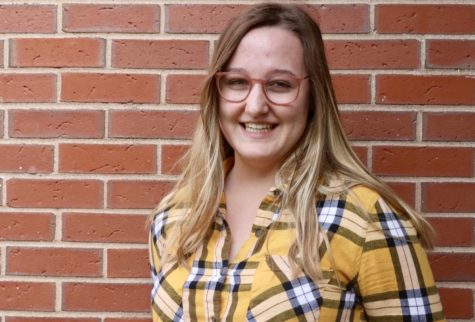Declaring Wayland in a climate emergency
Wayland resident and climate activist Michael Delman has written a resolution to declare Wayland in a climate emergency. In this Q&A, Delman explains what ‘climate emergency’ means and why it’s important.
January 21, 2021
Wayland resident and climate activist Michael Delman brought a resolution to the Energy and Climate Committee Wednesday that would declare the town of Wayland in a climate emergency. Town members will have the chance to vote on the plan at the town meeting in May. This is an edited conversation with Delman breaking down what it means to declare a climate emergency and what should be next for Wayland in the fight against climate change.
What does it mean to “declare a climate emergency?”
It is a clear acknowledgement from a municipality that we are facing a climate emergency. Every single declaration has that component, but some don’t have much beyond that. Increasingly, more and more have a second component which is a commitment to the best of their ability or an absolute commitment to reduce emissions by a certain date. What I’m doing for Wayland is bringing a resolution. Part one is you declare an emergency. Part two is when you state what your goal is—what percent of emissions are you going to cut, and by what date? Is it a straight cut, or does it include what are called offsets, like, “Oh, I planted a tree, so I don’t have to cut my pollution as much.” In our town, I’ve listed a target date of 2030 for emissions cuts. Part three is the next essential step which is to have a task force. Some sort of committee that is composed of town government officials and citizens as well—ordinary citizens who represent the town—who can study the issue over three months or so and come back with very specific recommendations.
The other two components are less big. One is the nature of who’s involved. How Democratic is it? Which groups get consulted? We also have to provide for what is sometimes called “environmental justice,” or a “just transition”—you often have the word “just” in there. That could mean, for example, if you have low income residents who are going to be more affected or the elderly, they need to have their voice heard. If you have indigenous people in your town, you have to make their voices heard. If you’re looking at things that could negatively impact other communities around you, especially communities that have fewer resources that are poorer, you should be thinking about the impact on those communities in your decisions. It’s not just “Great! Look at these wonderful things we’ve achieved,” at the expense of other communities. The final component is very simple and is a commitment to share what you’ve done with other towns at the state and federal level, and also to request that higher levels of government support the overall transition from a polluting and climate impacting, greenhouse gas producing economy to one that is regenerative and sustainable.
If you manage to get the first three basic components right, you did a great job. If you manage to get all five, you did a fantastic job. That’s what the overall declaration is that I’ll be bringing to the Energy and Climate Committee to vote on, and that is increasingly becoming the norm around the country and even around the world.
Why is it important to take the first step and declare a climate emergency?
Three big reasons, the first of which being you can’t always get what you want at a state or federal level. Sometimes the best you can actually do is start locally. It’s simply being realistic. The second thing is that we in Wayland can take a bolder stance than the state of Massachusetts, because we’re a town that has more resources and more money, so we can lead. If we just wait for everybody else to act—if we wait for the state to act, if we wait for the federal government to act—we might be waiting forever. We can take bolder action. The other thing is that simply by our acting and by other localities acting—like Cape Cod, Amherst, Worcester, Boston, Wellesley, Arlington and so forth–we not only inspire confidence in each other, but we also inspire confidence in higher levels of government. So we are creating bottom-up pressure, and that’s a really important part of activism. It’s not just, “Oh, let’s hope the supreme court does something,” or “let’s hope the Senate does something.” They matter too, but there’s something we can do right now. We don’t have to sit and wait. We’re setting the tone and pressuring those above us as they hear what localities are saying.
What was the road to bringing the resolution to the Energy and Climate Committee?
I consulted with a national organization called The Climate Mobilization, and they’re really important to me. They are my outside expert and they have helped pass these resolutions around the country. They know what they’re doing, and they have a very high standard, but they’re not living in Wayland. So, after getting all advice from them and looking at towns and cities across the country and drafting, three, then four and then five different drafts of this thing, I then brought it to people in our town who are experts and consulted with them individually or through open invitations through Patch and through outreach to networks of people I know who care a lot about the environment, and a lot of people came. A lot of people weighed in at different points and, of course, everyone’s got a different opinion on every single aspect. That’s the nature of thoughtful people. The fact that they’re pushing back is because they’ve really thought about these things and they have data. So, it’s been a lot of back and forth.
The version I’m finally bringing to the town’s Energy and Climate Committee is the seventh official version, but it’s probably more like the 12th version, internally. After they do their review, there will be one more version and hopefully that’s it. I have to submit it by Jan. 15 at 4:30 p.m.. If I’m even a minute late, it won’t make it into this year’s town meeting. We’re on a really tight deadline, and I have to get signatures. In addition to having it written for town meetings I have to have—it’s a very small number—ten signatures, but if I change it, I have to go back and get those signatures again. Getting signatures these days is a little harder in the pandemic.
Has the pandemic impeded the process at all?
There’s a yes and a no. It’s easy enough to get people to meet by Zoom. In some ways, it’s probably easier than asking people to drive somewhere and—not only use up fossil fuels to get there—but take up that travel time. I recognize that the town has a first priority right now, and the first priority is managing the impact of the pandemic on schools, residents, businesses and making sure everybody gets the vaccine. So there isn’t money in the budget to spend on climate mitigation and climate adaptation right now, and that’s a limit I might not have had to deal with in a pre-pandemic world. So for right now, we’re not asking for money or things that cost money. We’re not asking for lots of labor when people are busy. Every town official is working harder than they’ve ever worked. So this isn’t the time to ask the town to do more, but it is the time for the town to take a stand, because the clock is ticking.
What happens when you present to the Energy and Climate Committee?
They’ll vote to support the resolution, or they’ll vote to oppose the resolution. In New England, the way you pass a resolution is for it to be approved at a town meeting. You have to get the majority of the citizens to vote for it. Legally, you don’t need the Energy and Climate Committee, but in practice, they matter a lot. The people on the Energy Committee are a very astute group and they have tons of experience in this realm and have done amazing things. These are really knowledgeable people, and Wayland has been a real leader in the state and in the country. My goal is to build a coalition that’s going to be able to very strongly endorse this when we widely pass this at the town meeting in May and to have people on board.
What are some of those next steps the town can take that you mentioned earlier?
First and foremost, I would defer to the energy and climate committee. They know much more than I do. I would secondly defer to places like Menlo Park, California and Ann-Arbour, Michigan and others who have passed really bold climate initiatives, and ones that have proved to be profitable. You save money when you’re looking at ways to save energy. If I had to begin to get specific, I would say retrofitting buildings, and I would say making sure new construction is net zero emission buildings. I would also say higher mileage vehicles and more electric vehicles for our local, municipal fleet. A lot of people feel, and they’re right, “what are we going to do with all those big gas vehicles we already have?” Are we going to throw them into a pond? Of course not. That would pollute the pond. And we don’t want to waste all that metal. So the idea is that when we replace them—when we retire them—we look for much more efficient vehicles and, if possible, gas or fossil fuel-free replacements. Of course there’s continuing with smaller initiatives, and then there’s more radical things, like ending the flow of natural gas in a ten year window. That’s a very bold and controversial one. That isn’t something we would easily do, we [would] have to do it in a way that works so people aren’t punished by it. Certainly new construction should be fossil fuel free as soon as possible.
How can students help stop the climate emergency?
There are several ways. The first is very simply taking individual actions within your own household, and that would mean going to Wayland Energize and making sure your home is signed up for that. That would actually make a carbon difference. Or you could get a heat pump instead of using oil all the time, or you could switch your home to get electricity all supplied by wind power, which is something people can do and I’ve done. The second thing is absolutely, 100% join a group. If you’re in high school, joining the Green Team is a great place to begin. There are really committed, thoughtful people that are discussing the issues and looking for specific actions. And if you’re young, you can check out something like the Sunrise Movement and see if you feel good about and are aligned with their overall mission, the Green New Deal kind of stuff. If you’re of voting age, in May, if you’re 18, 100% show up at the town hall for the town meeting and vote in favor of this and consider speaking in favor of it. You could reach out to students in the Green Team to ask if there’s a way you can get involved.
What would you say to a student who believes climate change is exaggerated or fake?
I can understand that when mistruth and lies have been perpetuated by those who have an interest in spreading those lies, like ExxonMobil, who buried their own research. How do you compete when those who are responsible for the problem and those with a lot of money at stake are deliberately spreading lies. That’s hard. When you’re given two sides as if the two sides are equal, that is tough. But my second point to that would be, do the math. Start with the IPPC report that came out October of 2018—and only came out with stronger recommendations in 2019—that 97% of the world’s leading scientists are saying the same thing: that we are massively underreacting to a problem that is going to hit us worse and worse and worse. If someone is telling you two plus two is four, and another person is telling you two plus two is five, actually try the problem. You don’t need someone else to convince you. You can just go and look at the data. Read some of the reports. It is really sadly accurate and true. As Al Gore put it, it’s an “inconvenient truth.”


























